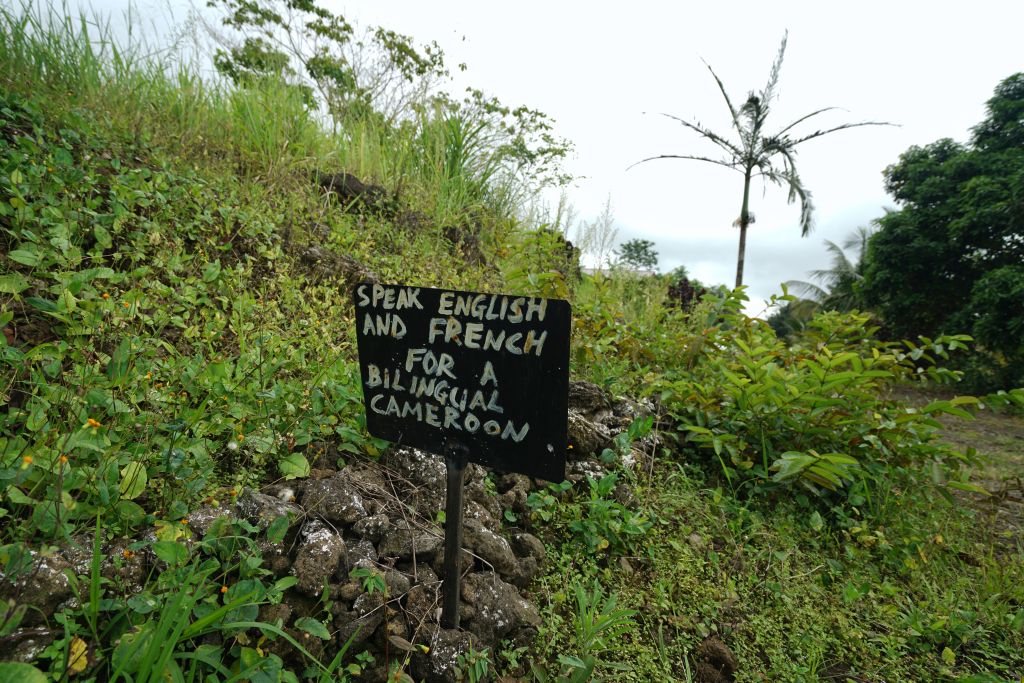ADF STAFF
Cameroon’s long-running rebellion by its English-speaking minority has spilled across its western border into remote areas of Nigeria’s Cross River state, raising concerns among some observers about the potential for the conflict to feed instability across the region.
Since the rebellion by the Ambazonia secessionist movement began in 2017, more than 6,000 civilians have died and 760,000 people have been uprooted across oil-rich western Cameroon. At least 70,000 of them have crossed the lightly patrolled border with Nigeria, seeking refuge in border communities such as Belegete, which hosts the largest number of displaced Cameroonian citizens.
Ambazonian rebels are seeking independence from predominantly French-speaking Cameroon. Rebels in Cameroon’s two western provinces have shut down government services, including education, in the territory they control. According to the United Nations, more than half the Anglophone regions’ 4 million people need humanitarian support, while about 600,000 children have been deprived of effective schooling because of the conflict.
Ambazonian rebels have attacked several Nigerian communities along the border in recent years. Two years ago, they attacked the village of Manga and killed the local chief. In December 2023, they attacked Belegete for 24 hours without any response from the Nigerian government. The attack left hundreds of civilians wounded or missing, including Belegete’s traditional leader, Chief Francis Ogweshi.
“As well as presenting a violation of territorial integrity, the incident also suggests collaboration with Nigeria’s own secessionist groups, with evidence of links between Ambazonian secessionists and the Indigenous People of Biafra,” analyst Augustine Aboh wrote in The Conversation.
The Indigenous People of Biafra is a movement in eastern Nigeria seeking to revive a movement to create an independent Biafra state. The secession of Biafra led to a civil war from 1967 to 1970.
“While Nigeria has in recent years partnered with Cameroon to ensure regional stability, the latest attack suggests a need to increase strategic cooperation between the neighboring countries to stem the growing threat,” Aboh added.
According to residents, Nigerian Soldiers arrived in Belegete two days after the attack and engaged in a firefight with Ambazonian fighters hiding in the forest nearby. Several Ambazonian fighters were killed, prompting others to kill a group of abducted civilians that included Chief Ogweshi.
“There’s no motorable road to the community and the network to communicate via phone is very poor, making life very difficult during an emergency,” Chief Ogweshi’s son, Mustapha, told HumAngle. “The kidnappers asked my father to produce Cameroonians seeking refuge in our community, including rebels who had deserted, but my father objected, saying he didn’t know their whereabouts.”
A few days later, Ambazonian fighters returned to Belegete, where they slashed some residents with swords, beat others in their homes, and set fire to some buildings.
“The Ambazonian separatist insurgency poses a threat not only to Cameroon and Nigeria but risks further degrading the security situation in West Africa,” Aboh wrote in The Conversation.
As the Nigerian military continues to fight Boko Haram and other insurgencies in the country’s north, its forces may struggle to respond effectively to incursions by Ambazonian rebels, Aboh added.
“Countering the Ambazonian separatists and other internal security threats will remain a challenge for the Nigerian government,” Aboh wrote. “With a vast population and territory, security personnel are already stretched thin.”

